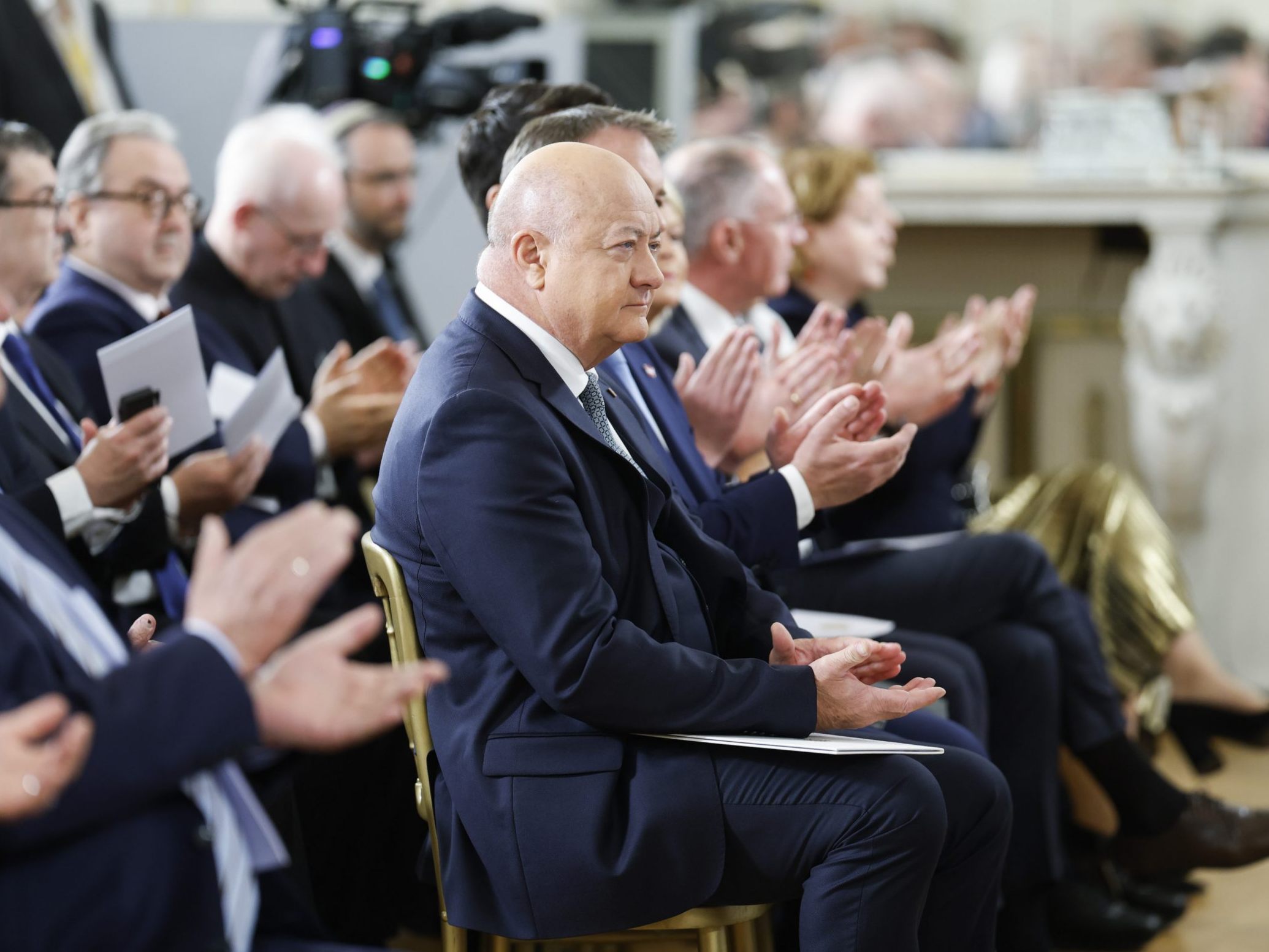80 Years Since the End of the War: Government Remembers Responsibility and Sacrifice

Federal Chancellor Christian Stocker (ÖVP) emphasized Austria's historical responsibility. Too few had once had the courage to stand up against authoritarian ideologies and hatred. Austria's responsibility means, especially now, when anti-Semitism is massively increasing, that "Never again" must be more than a phrase.
"We must stand up against it wherever it happens, and we must not stand idly by when Jews in Austria and beyond no longer feel safe," said Stocker. Austria had seen itself for far too long solely as a victim of the National Socialists. Today, it openly and impartially faces all chapters of its history, "the bright ones, but also the dark ones."
In his speech, the Chancellor remembered the over 65,000 Austrian Jews who were murdered in the Holocaust, as well as Roma and Sinti, political persecuted, people with disabilities, homosexuals, and all others who were disenfranchised, expelled, tortured, and killed by the Nazi regime. Hundreds of thousands of forced laborers were exploited under inhumane conditions; men, women, and children lost their lives through combat actions and bombings.
Ceremonial Act at the Federal Chancellery: "Thanks and Respect" to Liberators
Many Austrians also fell as soldiers in World War II. "They too are part of our history, and it is our duty to accept history in all its contradictions," said Stocker. We must understand the full extent of the crimes committed in the name of National Socialism.
Stocker expressed "thanks and respect" to all those who fought for Austria's liberation. "They truly bled for the victory over a brutal dictatorship marked by anti-Semitism, racism, and contempt for humanity." This was "the seed for the rebirth of our country."
Stocker called May 8, 1945, a "decisive turning point in Austria's history," as it was a prerequisite for the emergence of the free and independent Second Republic. Many Austrians from all ideological backgrounds were determined at that time to start anew and make it a success story together. Today, Austria is "a beautiful, livable, strong country" in a united Europe, and it is up to all of us to ensure that it remains so. Stocker appealed to approach each other, listen to each other, and accept each other in our diversity. "Let us never accept intolerance, no matter what form it takes," Stocker urged. "That is the responsibility that arises from history."
Criticism from Russian Embassy
A "too short historical memory" was accused of the government by the Russian embassy in Vienna, because even in the anniversary year, official representatives of Russia were not invited to the national celebrations. The Russian diplomacy takes this with calmness, as they find other ways to duly commemorate their heroes and victims. "What appears concerning in this context, however, is the attempt by the current Austrian leadership, presumably for political reasons, to exclude or outright rewrite certain chapters of their own history," criticized Ambassador Dmitrij Ljubinskij in a Facebook post.
SPÖ Vice-Chancellor Andreas Babler urged in his speech to never forget what "monster" can reawaken from our society when people believe they are superior to others and deny them their equality and rights. "Never again should we elevate ourselves above others, never again should we question the value of a group of people, never again should we allow ourselves to be divided and succumb to authoritarian temptation," he warned.
If Austria wants to continue its success story, it must pay attention to the weakest in society and strengthen free media as well as trust in politics. In recent years, society has allowed itself to be divided more and more often, there has been talk of those in the countryside and those in the city, of foreigners and Austrians. Groups have labeled themselves as "normal" only to imply that others are "not normal." "We should mend the cracks that have formed before they can completely divide us," urged the Vice-Chancellor.
Education Minister Christoph Wiederkehr (NEOS) called for listening to the warnings of survivors against hatred and exclusion, extremism, anti-Semitism, and racism on the occasion of the commemoration. "We must take these voices seriously and act accordingly," said Wiederkehr. There are still 14 eyewitnesses who tirelessly educate in schools. However, the mission is to maintain the culture of remembrance even when they are no longer there.
May 8 as "Day of Joy"
Green Party leader Werner Kogler spoke on social media of May 8 as a "Day of Joy," as it marks "the liberation from Nazi barbarism" and thus the beginning of peace for Austria. However, this peace is not a given and must also be defended, emphasized Kogler with reference to the Russian war of aggression against Ukraine.
FPÖ leader Hebert Kickl highlighted the importance of peace, freedom, and democracy in a statement. This is more relevant than ever in times when "certain forces want to elevate war to a legitimate means of politics" again. He also remembered, besides the fallen, civilian war victims, and those murdered and persecuted by the Nazi regime, "the injustice" against old Austrians.
(APA/Red)
This article has been automatically translated, read the original article here.





